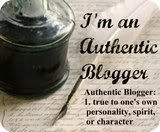 You remember reading those classic books in school, such as Catcher in the Rye, To Kill a Mockingbird, and the like. Don't you?
You remember reading those classic books in school, such as Catcher in the Rye, To Kill a Mockingbird, and the like. Don't you?Of course you do. We all had to read that stuff in our English classes. If it wasn't those, it was something else. Maybe Canterbury Tales? Or Shakespeare?
Your kids may not be getting that chance anymore.
According to the Daily Telegraph (and why isn't this stuff in any American newspaper?):
"A new school curriculum which will affect 46 out of 50 states will make it compulsory for at least 70 per cent of books studied to be non-fiction, in an effort to ready pupils for the workplace."To do that, they're going to be removing books like Rye and Mockingbird, instead forcing them to include recommended "informational texts" like "Recommended Levels of Insulation by the the US Environmental Protection Agency, and the Invasive Plant Inventory, by California's Invasive Plant Council."
Seriously?
I've seen this on an Australian news web site and a couple of blog posts, but that's it. Where is the media in this? Caiti Doyle, over at Technapex, has a great post on this, saying:
"David Coleman, one of the leading authors of the new standards, said that educators are misinterpreting and overreacting to the new requirements. These works of nonfiction are meant to be assigned across all courses, he says — social studies, science, even math classes — saving plenty of time for literature in English classes."But Doyle goes on to remind everybody that no Math, Social Studies, Science, or any other kind of teacher is going to remove some of their assignments so that they can include this kind of reading. It is going to fall squarely on the English teachers. Thus crowding out the literature that we all knew and loved (ok, well, maybe just "knew").
Boyle also quotes Coleman as saying in a Washington Post article last year:
"Forgive me for saying this so bluntly, the only problem with . . . [that] writing is as you grow up in this world you realize people really don’t give a [expletive] about what you feel or what you think. What they instead care about is, can you make an argument with evidence, is there something verifiable behind what you’re saying or what you think or feel that you can demonstrate to me? It is rare in a working environment that someone says, ‘Johnson, I need a market analysis by Friday, but before that I need a compelling account of your childhood.'"This is missing the point so badly that he just killed another hunter a mile away instead of hitting the deer he was aiming at.
We don't read novels to improve ourselves as far as being able to better balance a budget or something like that. We read them to enrich our lives. Good English teachers instill a love of reading, but also an ability to look at a work critically, analyze it, and get something out of it. That skill can be adapted once you're out of school to a busload of other ways, including something actually productive.
Kids learn when they're engaged with the material. When they find it interesting. Do you really think learning about "insulation" or "invasive plants" is going to engage any kid to actually enjoy reading? Ok, maybe it was "Killer Plant From Outer Space" or something, but I don't think that's the definition of "invasive" that they're using there.
We're having enough trouble getting kids to read, and enjoy reading, as it is. Textbooks are already non-fictional anyway. Do you really want to make it harder to get kids reading? Because I guarantee you, the best way to do that is to read about insulation.
This is yet more asinine federal government interference in what should be a state issue. States should be running their own education system. When the federal government gets involved, you get bullshit like this.
A case can be made for which literature should be read in school.
But there's gotta be something in there.


















0 comments:
Post a Comment
Note: Only a member of this blog may post a comment.